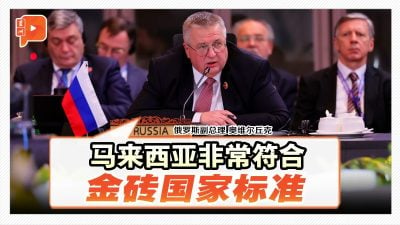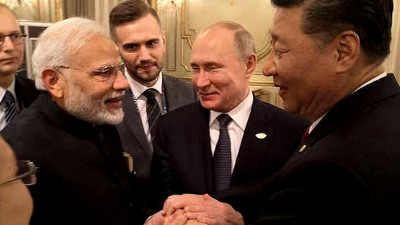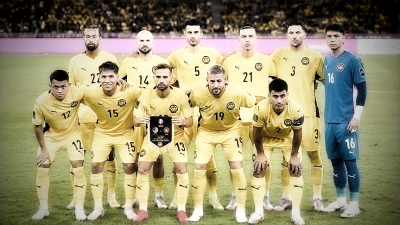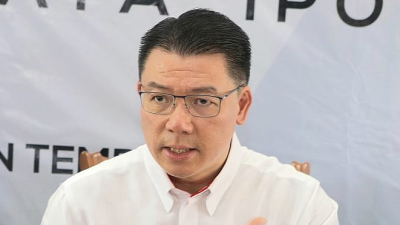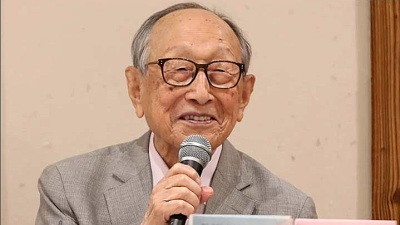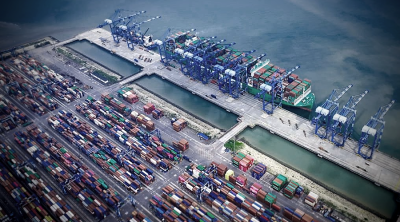BERLIN: Taken off-air shortly after Russia’s invasion of Ukraine, the liberal Echo of Moscow radio station has found a new home in Berlin from where it has resumed the fightback against President Vladimir Putin’s propaganda.
“Ekho Moskvy” radio, considered one of the last independent voices in Russia, in early March joined the ranks of media outlets forced to halt operations in the face of an unprecedented crackdown by the Kremlin over coverage of the war.
A number of the station’s employees left Russia in the wake of the clampdown, including deputy editor-in-chief Maxim Kurnikov who has made a new life in the German capital along with several former colleagues.
Others have headed for Latvia, Lithuania and Georgia.
Despite being scattered across Europe, there was never a question of staying silent on the Ukraine conflict or events inside Russia.
Since earlier this month, Kurnikov and his team have restarted their broadcasts on an app simply called “Echo.”
“It works just like a radio,” Kurnikov told AFP, claiming that the app was fast becoming one of the top downloads in Russia.
Russian authorities tried to block the app after a few days but their efforts were successfully rebuffed, the 38-year-old added.
The new outlet also brings content being produced on other platforms by former Echo of Moscow journalists under the same roof.
“We have combined all of our team’s YouTube channels,” Kurnikov said.
“Echo” aims to broadcast live for 10 to 12 hours a day, with replays filling the rest of the time.
A website and two Telegram channels are also part of the project.
“We want to offer our audience a complete picture of what is happening in Russia,” Kurnikov said.
Around 20 journalists are currently working with “Echo”, and around 10 more people are expected to join in the near future, he said.
The plan is for much of the “Echo” team to eventually work from Berlin, in offices and a studio paid for by donations.
Germany, which has already taken in around a million Ukrainian refugees, has become a popular destination for exiled Russian dissidents.
The German government has pledged to ease visa rules for journalists and other Russians fleeing political persecution.
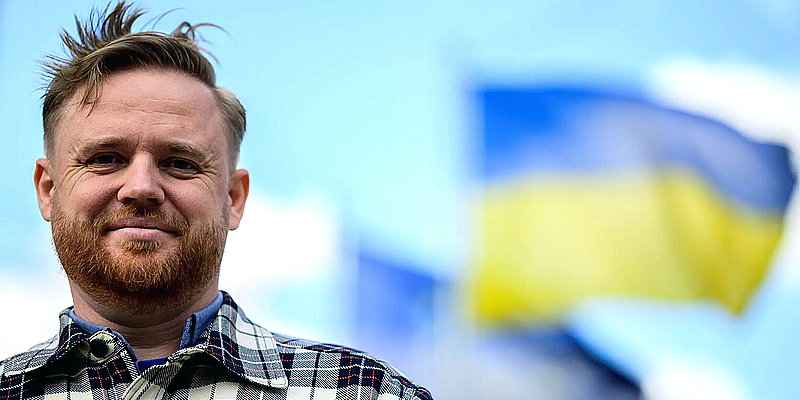
Russian voices
Berlin-based German writer Vladimir Kaminer, born in Moscow, was one of the driving forces behind the “Echo” comeback. He has worked closely with Kurnikov to bring the project to life.
“I thought it would be amazing for someone to address Russians from Europe,” the 55-year-old said, condemning the “unspeakable state propaganda” that has accompanied Moscow’s February 24 invasion.
There will also be insight from within Russia. The radio station’s veteran editor-in-chief Alexei Venediktov — who has been with Echo of Moscow since its founding in 1990 — has remained in his home country and is part of the new project.
“That we still have voices inside Russia is the most important thing to us,” said Kurnikov.
Kurnikov has also teamed up with Germany’s top-selling Bild newspaper, providing news and commentary on its TV station and its Russian-language social media channels.
Risk of return
Before the war, Russia still had a relatively diverse landscape in television, newspapers and online, even if the climate had become increasingly restrictive in recent years.
But draconian new rules introduced after the February 24 operation — which made it illegal to call the military action an “invasion” or disseminate “fake” news about it — have transformed the scene, allowing state-controlled media to dominate the airwaves, and the message.
TV channel Rain (Dozhd) — like Echo of Moscow considered a pillar of Russia’s independent media — has closed down, while access has been blocked to a slew of pro-opposition news sites.
The country’s most prominent independent newspaper Novaya Gazeta, whose chief editor co-won the Nobel Peace Prize last year, has set up a newsroom in Riga after coming under growing pressure at home.
Kurnikov himself has no plans to return to Russia anytime soon.
He has publicly criticized Russia’s war, an offence punishable with jail time.
As a reserve officer, Kurnikov would also risk being mobilized to join the very war he has been opposing.
ADVERTISEMENT
ADVERTISEMENT






